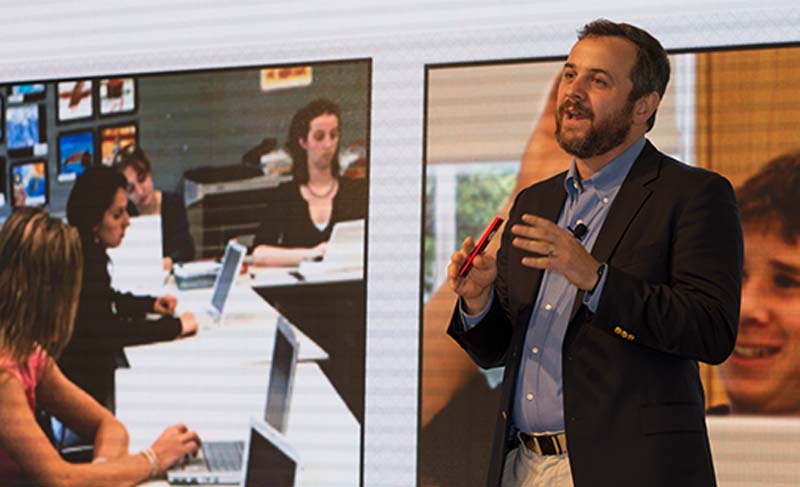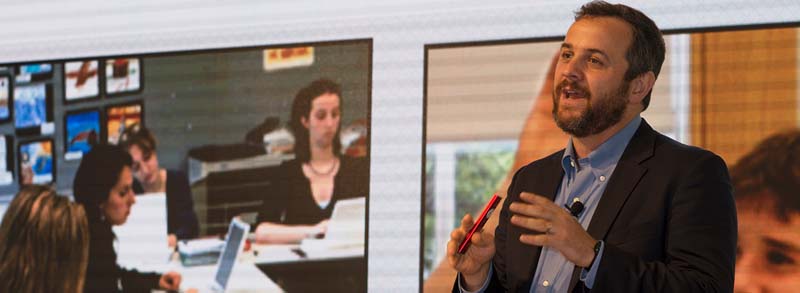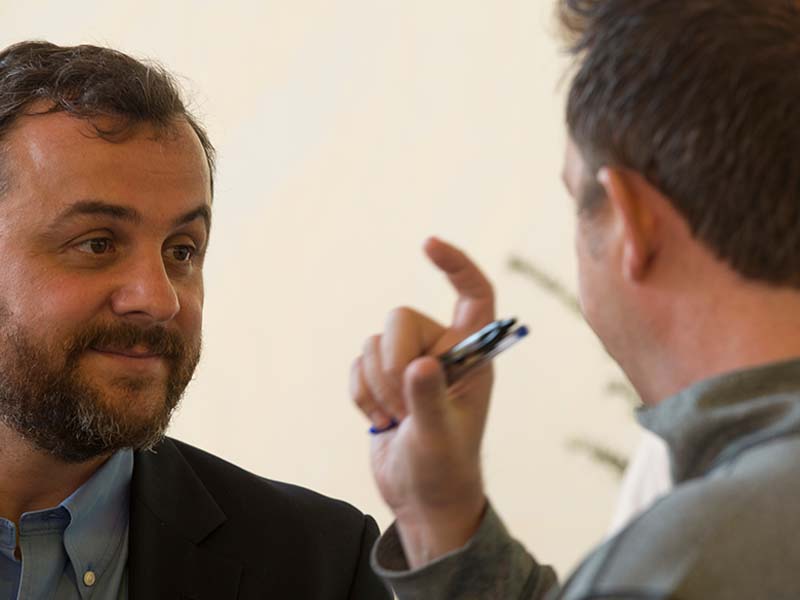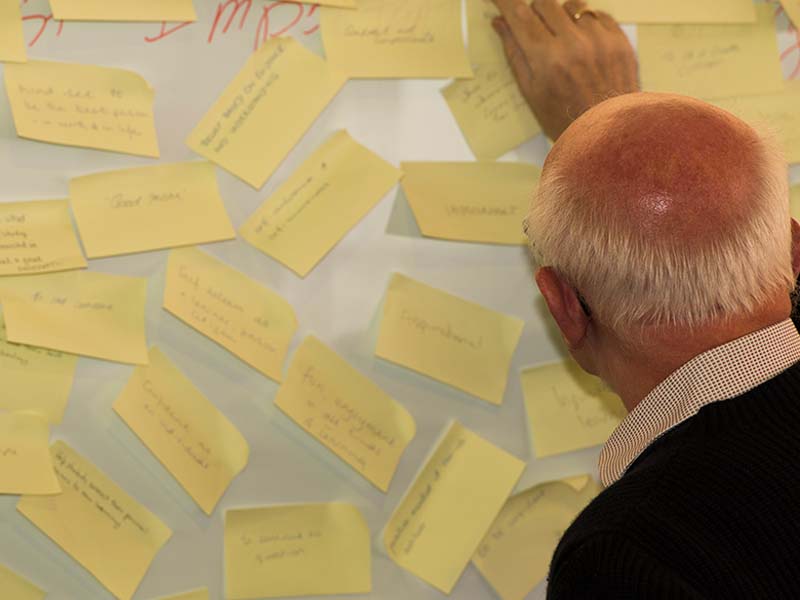We use cookies to improve your online experiences. To learn more and choose your cookies options, please refer to our cookie policy.

Innovative teaching and learning in schools is achieved through regularly testing ideas, learning from them and deciding how to move forward MIT Teaching Systems Lab Professor Justin Reich says regular testing our ideas paves the way for both teachers and students to learn through experience and evaluate how to move forward

MIT Teaching Systems Lab Professor Justin Reich says regular testing our ideas paves the way for both teachers and students to learn through experience and evaluate how to move forward

Presenting at Nord Anglia Education’s Senior Leadership Team Conference in Switzerland recently, Professor Reich said innovative learning would happen in schools if the quality of professional development teachers receive throughout their career improves.
“All over the world people want to see more ambitious teaching and learning happening in classrooms. From our view the way that will happen is if we can dramatically improve the quantity and quality of learning experiences that teachers have throughout their careers.”
Education systems must create an environment that’s conducive for teachers to get better at their work, he said.
He said schools should offer “online and blended learning” opportunities to increase access to professional learning.
“It’s going to play a crucial role,” Professor Reich said.
“We think that teachers don’t have enough opportunities to practice.”
Another aspect crucial to driving innovative teaching and learning in schools was sufficient investment in computers and other technologies to enable more active, student-led learning across subjects.
Speaking about his first teaching job as a ninth-grade world history teacher in 2003, Professor Reich said how he was struck by the opportunities computers and other technologies gave students to be able to connect with each other, classrooms and the rest of the world.
“I was struck by the opportunities that computers gave me to take responsibility from learning off my shoulders as a teacher, on to the shoulders of my students. To have them connect with one another, to connect with other classrooms, to connect with the rest of the world – it was a powerful transition for me as a teacher,” Professor Reich said.
A few years later, Professor Reich started a company called EdTech Teacher and took what he had learned from theclassroom to other schools. His aim was to help teachers to rethink teaching practices using technology so students could own their learning by connecting with one another, and to resources globally.
Professor Reich said he focused on working with teams of teachers, teacher-leaders and school leadership teams to track what was happening differently for schools that went from having a few teachers doing extraordinary things with technology, to widespread systemic change among the teaching staff.
“Wherever you sit within the Nord Anglia family, we need to think about what are the concrete steps we can take to have innovation go from being neat things that happen in a few isolated places that look great and go really well but don’t affect what’s happening for all the 53,000 students in your system, to changes that scale and become sustainable.”

“Launching Innovation in Schools”, an online teaching course offered through MIT’s Teaching Systems Lab, offers a model of teaching best practice to propel innovative learning and teaching in schools. Professor Reich says the model for driving innovation in any industry is to “innovate through iterations”; to quickly put forward ideas, act on them, evaluate, improve or change and keep moving forward.
“The core thing we have to understand is that we’ve moved away from ‘ready, aim, fire’ to ‘ready, fire, aim’. You shoot things into the world, see where they land and then you figure out how to move and get closer and closer to your target. This [is the] idea of innovation through iteration; lots and lots of cycles, cycles that build on one another that spiral and grow.”
When it comes to good leadership that drives innovation in schools, Professor Reich said this concept could blossom if communities were brought together around common or shared values – especially in communities comprising of autonomous professionals like teachers.
“We need to deeply imagine learning and innovation as intertwined together and as a collaborative process with our communities, with lots of stakeholders.”
Innovation through iteration also means having to deal with and accept change regularly, which can be emotionally hard for many people.
He said in many senses this could mean loss on many levels, such as the loss of a habit, identity, a role played, which can result in friction.
Professor Reich says getting over this hurdle will involve working on a team’s ability to effectively listen to each other and collaborate to solve problems.
The final part of the innovate through iteration cycle before moving forward, is to measure and evaluate whether the implemented changes are truly working. This is a huge challenge in many parts of the education sector, says Professor Reich, but regular assessment and evaluation helps start the right conversations about the direction in which a school should be moving.
“Things don’t get better just by trying; they get better by trying, evaluating how we’re doing and moving forward from there.”